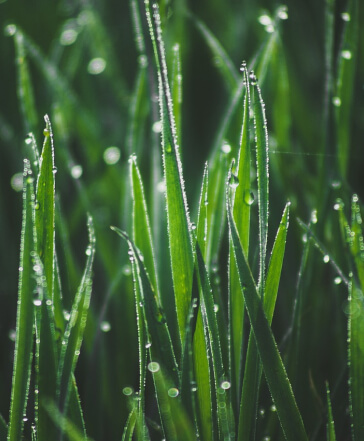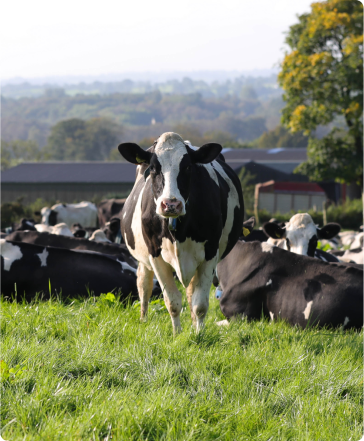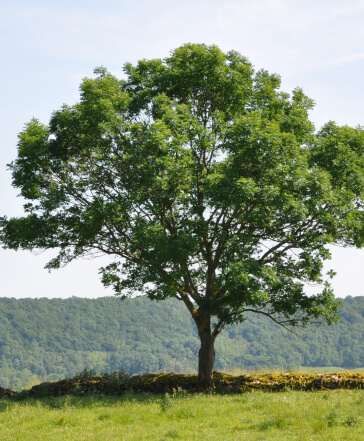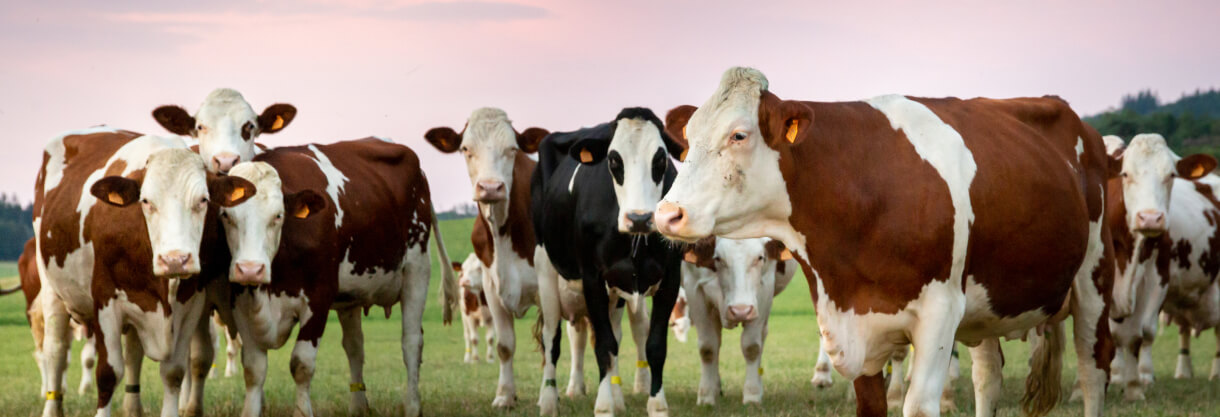
Committed Dairy Farmers
Dairy farmers in Europe are working hard to produce healthy and nutritious dairy products in
As all agricultural and agrifood sectors, the dairy sector has long been aware about the impact their activities have on the planet in terms of climate change and environment. It has been for years committed to continuously mitigating these impacts and improving its practices in a sustainable development approach.
In Europe, Dairy professionals are working every day, with the help of advisers and researchers, to reduce their footprint on the environment in a number of different ways, including recycling, finding new renewable energy sources, reducing and repurposing waste, and upcycling nutritious ingredients for the cows’ diets. Innovation is key to ensuring a sustainable transformation.

Dairy farmers in Europe are working hard to produce healthy and nutritious dairy products in

Dale Farm is a dairy co-operative based in Northern Ireland, owned and supplied by 1,300

Carbon farming promotes a way of farming to fix carbon in agricultural soils.
EMF members are committed to act at regional, national and European level, they are involved in economic, health and environmental issues, making their organisations essential pillars in the development and sustainability of the dairy sector.

The Paris Agreement is a legally binding international treaty on climate change. It was adopted by 196 Parties at the UN Climate Change Conference (COP21) in Paris, France, on 12 December 2015.
The Paris Agreement marked a turning point in the international climate negotiations and signifies an intensification of global efforts towards a low emissions future. In November 2016, the Paris Agreement entered into force, having been ratified by nations representing over 55 percent of total GHG emissions. It sets a global aim to limit warming to below 2°C and to pursue efforts to limit it to 1.5°C.
In 2016, the International Dairy Federation (IDF) representing the global dairy sector signed with the FAO-UN the ‘Dairy Declaration of Rotterdam’.
The Dairy Declaration recognises the major contribution that dairy makes to countries’ economies, the essential role of dairy in a balanced diet, and the key role the sector plays in addressing environmental degradation and climate change.
There are currently 28 signatories to the declaration, means that countries representing more than half of the world’s milk production are committed to the sustainable development of the global dairy sector.
The IDF Paris Declaration on Sustainability bring to light the tangible commitments undertaken by dairy operators toward the various pillars of sustainability (climate change, nutrition, health, economic security, natural resources stewardship, etc.) and sends a clear message to governments, decision-makers and the public on the dynamism of the dairy sector.
The declaration was ratified and resonated during the IDF Dairy Leaders Forum in October 2024 in Paris where actors across the dairy value chain shared their work and initiative.
EMF members have made commitments at national level to improve their practices and move towards a more sustainable production model. All are in line with the objectives set by the FAO for 2030.
The average dairy farm in Austria is a farm with 23 dairy cows, where the family helps together. Austria’s dairy farmers are preserving species-rich grassland, transforming grasses that are inedible for humans into edible milk. Dairy farms are checked often and regularly, like the milk along their entire journey, including all processors and sellers.
Since 2014, the dairy sector has a ‘Sustainability Monitoring’ with 42 possible initiatives a dairy farmer can take, divided in 8 categories: animal welfare, animal health, climate, environment, social & economic, soil & water, feed and energy. Every 3 years, all Belgian dairy farmers are audited on site.
A climate partnership for Food and agriculture has been set up resulting in recommendation of 22 climate actions that combined could reduce the climate impact of the sector by 62 percent by 2030. Examples of actions: climate check and action plan for individual farms, renewable energy production, biogas from degassing and advanced biofuels an so on.
‘France Terre de Lait’ plan launched in 2017 embodies a desire to integrate economic, social and environmental challenges into the dairy industry’s sustainable development strategy. It respects the founding principles of the ISO 26 000 “social responsibility” international standard: transparency, openness, dialogue with stakeholders and the implementation of continuous and sustainable progress, with transparant KPI’s and regular monitoring of progress.
In 2011, the dairy industry launched its first projects on the sustainability of milk production. the first version of the QM Sustainability Module Milk was developed. Since 2020, it has been available as an industry solution for all dairies in Germany. The module records and evaluates a broad set of sustainability criteria from the areas of economy, ecology, social issues and animal welfare. This allows to identify potential for optimization as well as to initiate public dialogue.
Key stakeholders in the Irish Dairy sector have endorsed the Dairy Declaration of Rotterdam, which is a commitment to the sustainable development of the dairy sector and are official partners of the Signpost programme coordinated by Teagasc. The Signpost programme is a multi-annual campaign to lead climate action by all Irish farmers. In this programme, Dairy has an important role as an essential part of a balanced diet, and contributes greatly to the economy of Ireland and in agricultural land management
Northern Ireland dairy processing businesses are investing in new technologies to continue to improve efficiency including increased use of renewable energy and waste reduction. NI dairy farmers too are taking measures to lower their carbon footprint and reduce emissions, and, with farming practices such as hedge management, to protect and nurture wildlife habitats and promote biodiversity.
In Norway, there is an agreement of intent between the agricultural sector (farmers’ organisations) and the government to reduce greenhouse gas emissions by 5 million tonnes of CO2 eq. by 2030 and increased absorption of carbon from agriculture. The agreement is valid for the period 2021-2030. There are 8 focus areas:
Source:
avtale 210619.pdf
The Charter for sustainable swiss milk: “swissmilk green”. The production standard for sustainable Swiss milk was introduced in September 2019. From 2024 onwards, only Swiss milk that meets the production standard may be produced, marketed and processed in Switzerland. The requirements of this production standard have ensured the high level for the entire Swiss milk industry with regard to animal welfare, feeding, sustainability and social criteria. Ten basic requirements have been defined and with it two additional requirements from a selection must be implemented.
In each country, tools were developed and made available to dairy stakeholders to help them improve their practices.
Klimrek
Decide
Cool Farm Tool
Farmdesk
ESGreenTool
CAP’2ER
QM Sustainability Module
Klimastar
CAFRE Agriculture Business Support
Signpost Farm Sustainability Plan (FSP)
Working Group Consultation
Climate Calculator
Explore concrete actions taken among EMF countries towards more sustainable dairy production systems

Dairy farmers in Europe are working hard to produce healthy and nutritious dairy products in

Dale Farm is a dairy co-operative based in Northern Ireland, owned and supplied by 1,300

Carbon farming promotes a way of farming to fix carbon in agricultural soils.
EMF members were delighted to take part in the EFAD (European Federation of the Associations of Dietitians) Congress in Malmö
We are very much looking forward to The European Federation of the Associations of Dietitians (EFAD) Congress in Malmö later
On 16 September, join us in Brussels for a symposium bringing together young farmers, experts, and national dairy organisations. Together,
How does dairy farming support healthy soils? It’s a multifaceted topic — but in our latest fact sheet, we’ve broken
Follow us on LinkedIn
The European Milk Forum is a non-profit organisation which plays a vital role in driving the strategic development, management, and exchange of integrated information initiatives on milk and dairy across Europe.
Today, nine organisations have joined the EMF: Austria: www.ama.at, Belgium: www.vlam.be, Denmark: www.danishdairyboard.dk, France: www.cniel.com, Germany: www.initiative-milch.de , Ireland: www.ndc.ie, Northern Ireland: www.dairycouncil.co.uk, Norway: www.melk.no and Switzerland: www.swissmilk.ch
The EMF participates in the EDA-network.
This website has been designed and produced by the EEIG EMF for the exclusive benefit of its members.
© European Milk Forum 2025
© European Milk Forum 2025 | All Rights Reserved
Designed & Developed by Rooftop Twenty Two